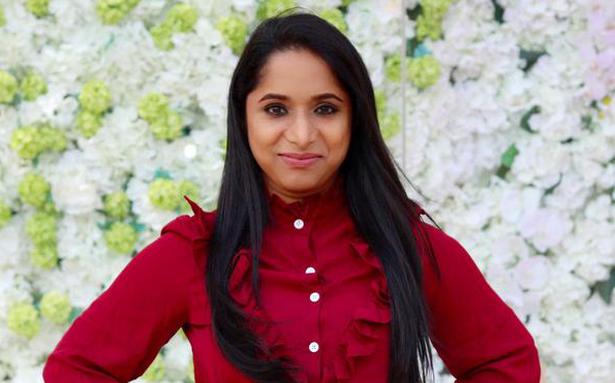Kerala became the first state in India to become a hundred percent literate on 18 April 1991. Kerala is also among the most literate states in India with a 96.2 percent literacy rate, according to the National Statical Office Survey.
The basic aim of any education is to bring about a set of behavioural modifications at the end of a period of specific instructions. The commonly accepted goal of education is the accomplishment of the overall development of personality, and the harmonious development of the individual.
News (both print and non-print) reports state that the online behavioural patterns of Malayali individuals do not satisfy the impression projected by the high literacy rate in Kerala. This is exclusively consented by Gayatri Babu, the host of Get Roast with Gaya3, a Malayali diasporic YouTuber who is quite famous in Kerala for her social roast videos.
Her relevant content combined with her enthusiasm to engage with societal conditioning is an important marker of change. This is quite evident from her words, “This channel is just a train to take people stuck in the 19th century and bring them to the 21st century.”
At present, Malluanalyst and Get Roast with Gaya3 remain among the few popular YouTube channels that initiate a gradual but continuous change in the Malayali psyche.

Gayatri’s recent videos include themes like ‘Disability is not a Joke’, ‘Why Same-Sex Marriage should be Legalised in India’, ‘Should women only host cookery shows‘, etc. Many of these videos are themed on sex education, cyberbullying, gender equality, and the like, which nudge viewers to reflect on their own mindsets and actions.
In the comment box of Gayatri’s channel, people open up about how their thinking process has been impacted by her videos. Thus, her efforts in initiating dialogues on gender justice, social equity, and popular morality are a breakthrough in the online cultural history of Kerala. The following are some excerpts from an interaction with Gayatri
Q) How far do you think your videos have opened up conversations on issues seldom dealt with by other YouTubers in Kerala?
To a great extent, I feel safe talking openly about politics and extreme religious norms because I am not currently residing in India. I am in a country where hate crimes are low mainly because of the stringent laws. This is a big deal because I get constant threats from different people online. However, I would like to make it clear that this wasn’t a reason for me to begin the social roast videos because I had never imagined these consequences when I was beginning to speak up. It was eventually that I realised how my diasporic position has helped me this way.
“This is what keeps me going. Every video comment has people, mostly youngsters, speaking about how my videos make them think differently, and how they show it to their parents so that they also have some reflective effect on the regressive thoughts of people from the older generations. These instances may be scattered, but as a creator, it means a lot to me”
Also read: Viral Culture: The Toxic, Invasive Trend Of Online Trolling
Q) Do you think the Kerala society needs reformation?
I feel that caste, religion, and gender are areas where we as a society need to work on. Gender discrimination, especially in marital relationships is also an area where major reformation is needed. We must also strive to break the binary and push for gender inclusivity and queer representation.
Q) Would you have done the same videos provided you were settled in Kerala? And would you continue them in the future after you are settled in Kerala?
I would definitely do the same videos but I would honestly make myself safe while doing that. I might have to go an extra mile to make my location private, maybe even getting a gun license for self-defense even though now it sounds exaggerated. I am a logical person and hence, ensuring my safety is also a priority. But I can’t compromise on the issues I speak about because that makes me who I am.
Q) Do you think that it is wholly your diasporic life that initiated a change in your mindset and encouraged you to speak up?
The spark was within me from childhood. Raised in an army cantonment, I was courageous and wasn’t quite aware of gender discrimination (or the level of it) in the outside world. But in my teenage, I moved to Kerala with my grandparents. That is when the avalanche of inequalities hit me. Questioning injustice was there, but I never dared to speak up publicly.
The diasporic life has definitely helped me to practice feminism and in my house, my husband and I conduct a gender-role-free family life. We also intend to show this to our kid rather than just preaching about equality. This I believe, must have been a tad bit difficult to execute in Kerala where both our parents expect me to do all the household chores and caregiving myself, because of my gender. Then we would have to begin by hurting their feelings. So being away from them is a sigh of relief when it comes to this aspect.
Q) Based on your experience, could you elaborate on the change of thinking you have noticed in your viewers as a result of your videos?
This is what keeps me going. Every video comment has people, mostly youngsters, speaking about how my videos make them think differently, and how they show it to their parents so that they also have some reflective effect on the regressive thoughts of people from the older generations. These instances may be scattered, but as a creator, it means a lot to me.
Today’s technological interventions have created massive transportation and production of information that forms and reforms its users now and then. Get Roast with Gaya3 is a YouTube channel where the host, Gayatri Babu communicates to the Kerala society from a distant land and impacts them
Q) What is the most violent threat that you have received so far and how did you respond?
I have been called a sex worker who will do anything for publicity, and this was said by a celebrity on a public TV channel interview. I was asked by people around me to respond. But I chose to ignore and I don’t regret it. For me, sex worker is not a bad word. They should try harder to come up with more abrasive abuses.
Q) Have you ever faced the question, “What right do you have to speak of Kerala’s context from abroad?” If yes, how did you reply?
Yes, mostly I get it when I speak against the nationalist agenda. I tell them as long as I hold an Indian passport; I have every right to speak about issues in my country or state.

Today’s technological interventions have created massive transportation and production of information that forms and reforms its users now and then. Get Roast with Gaya3 is a YouTube channel where the host, Gayatri Babu communicates to the Kerala society from a distant land and impacts them.
Every day these efforts result in tiny ripples of change which in the long run add to the dialogue on equality, inclusivity, and progressive thought.
Also read: Rethinking Online Dating: How Many Of Us Can Afford To Fall In Love?
Featured Image Source: The Hindu
About the author(s)
Vidhu (she/her) is an emerging writer with Masters in English language and literature, keen on learning the politics of the world around her. She has dreams to create a career in journalism and writing, where she unburdens her self. She has a great taste for movies from varies geographical spans and pens down poetry in magical charms. She is open to projects or research centring on humanities.





